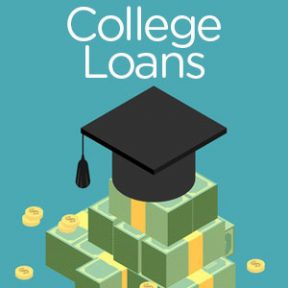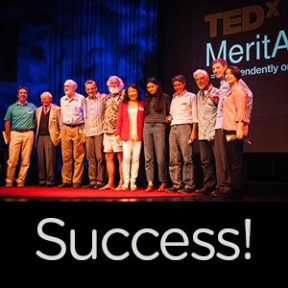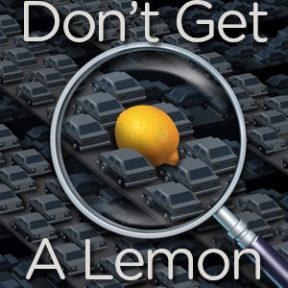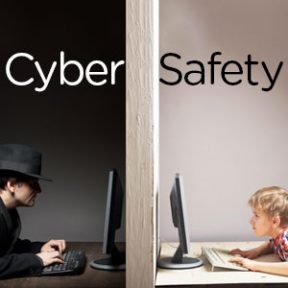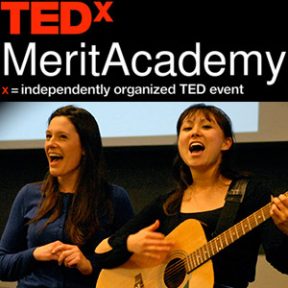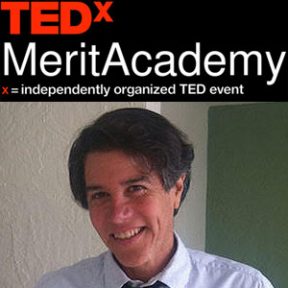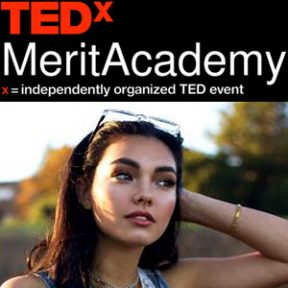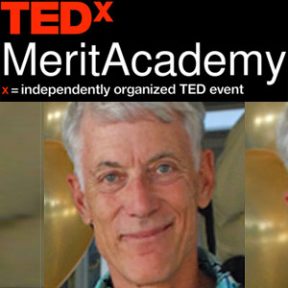 So you got your kid into college – and it’s a great college – and the financial reality smacks you in the head when you get your first college bill. Yikes! Unless you have the funds to pay for your child’s college safely tucked away under your mattress, you’re going to need money fast.
So you got your kid into college – and it’s a great college – and the financial reality smacks you in the head when you get your first college bill. Yikes! Unless you have the funds to pay for your child’s college safely tucked away under your mattress, you’re going to need money fast.
Be careful when looking at loans. They’re not all the same and the rules have changed. Check out many options before signing any contracts. I read this great article in Money Magazine (August 2017).
Federal Plus Loans (fixed APR: 8%)
Plus loans are the easiest to get – even with bad credit (except bankruptcy). Be careful how much you actually borrow because it’s easy to take more than you really need and then set yourself up for difficulty in repaying the loan later.
Private Loans (fixed APR: starting at 5.4% and up)
Private loan lenders seek clients with good credit history. So if you have excellent credit, you’ll probably get a great deal at a low APR. But if your credit is less than stellar, you may end up paying upwards of 12%! Yikes!
Home Equity (fixed APR: starting at 5.4% and up)
By using your home (that you own) as collateral, you can qualify for good loans at low APR. But, be careful of hidden costs – make sure your quotes include all costs such as appraisal fees. Because your home is probably one of your biggest investments, make sure you have enough funds to cover your retirement, kids’ weddings, and other expenses in the future.
Remember, education loans are almost impossible to escape – even in bankruptcy – so only borrow what you actually need.
 So you got your kid into college – and it’s a great college – and the financial reality smacks you in the head when you get your first college bill. Yikes! Unless you have the funds to pay for your child’s college safely tucked away under your mattress, you’re going to need money fast.
So you got your kid into college – and it’s a great college – and the financial reality smacks you in the head when you get your first college bill. Yikes! Unless you have the funds to pay for your child’s college safely tucked away under your mattress, you’re going to need money fast.
Be careful when looking at loans. They’re not all the same and the rules have changed. Check out many options before signing any contracts. I read this great article in Money Magazine (August 2017).
Federal Plus Loans (fixed APR: 8%)
Plus loans are the easiest to get – even with bad credit (except bankruptcy). Be careful how much you actually borrow because it’s easy to take more than you really need and then set yourself up for difficulty in repaying the loan later.
Private Loans (fixed APR: starting at 5.4% and up)
Private loan lenders seek clients with good credit history. So if you have excellent credit, you’ll probably get a great deal at a low APR. But if your credit is less than stellar, you may end up paying upwards of 12%! Yikes!
Home Equity (fixed APR: starting at 5.4% and up)
By using your home (that you own) as collateral, you can qualify for good loans at low APR. But, be careful of hidden costs – make sure your quotes include all costs such as appraisal fees. Because your home is probably one of your biggest investments, make sure you have enough funds to cover your retirement, kids’ weddings, and other expenses in the future.
Remember, education loans are almost impossible to escape – even in bankruptcy – so only borrow what you actually need.
 As a college advisor, I wonder why selective colleges like Princeton, Harvard, Yale and Stanford keep “trade secrets” about how they choose their freshmen class each year. Students and parents strive to see the formula that colleges use to determine who gets in and who doesn’t.
As a college advisor, I wonder why selective colleges like Princeton, Harvard, Yale and Stanford keep “trade secrets” about how they choose their freshmen class each year. Students and parents strive to see the formula that colleges use to determine who gets in and who doesn’t.
In the book, The Chosen: The Hidden History of Admission and Exclusion at Harvard, Yale, and Princeton? author Jerome Karabel exposed how the Ivy League was more interested in sustaining aristocracy than shaping young minds. They routinely rejected women, Jews, blacks, and others, and they even changed admissions criteria so their legacy and elite students would get in before the super bright Jews and Asians.
Sadly, it’s still going on today. Princeton just filed a “reverse Freedom of Information Act” lawsuit against the Dept. of Education and the Office of Civil Rights to prevent their “trade secrets” on admissions decisions from becoming public information. Hmm. I wonder what they’re hiding?
Every year, I see amazing students get passed up by legacy students (students whose parents attended the same colleges and donated lots of money) with substandard grades, average SAT/ACT scores, and no projects. If colleges were transparent about admissions decisions, I believe that more students would be admitted based on merit and not family name, wealth, and ethnicity.
[Source]
 We were rejected when we first applied to host a TEDx event. Yup. Actually, we were rejected twice because they considered our topics “too focused on climate change.”
We were rejected when we first applied to host a TEDx event. Yup. Actually, we were rejected twice because they considered our topics “too focused on climate change.”
To solve the problem, while we didn’t reduce our numbers of speakers who offered solutions to climate change, we did invite other interesting speakers to offer more diversity. But isn’t climate change the single most important crisis we face today? If we don’t reduce CO2 in the atmosphere and stop warming up the planet, our permafrost in the artic will begin to melt, and then we’ll face problems that we probably will not be able to fix.
In other words, if we don’t find solutions now, all of the other issues will be moot. Check out this interesting article by New York, “The Uninhabitable Earth.”
 Our TEDxMeritAcademy debut at the Rio Theatre was a huge success!
Our TEDxMeritAcademy debut at the Rio Theatre was a huge success!
With 9 dynamic speakers, 1 music video, and 2 TED pre-recorded speakers, we introduced innovative solutions to climate change, overpopulation, and plastic up-cycling, as well as exploring black holes in the universe and contemplating racism in America.
We’ll post our TEDx videos soon to share these ideas worth spreading!

 Even though it can save you thousands of dollars, buying a used car can be stressful.
Even though it can save you thousands of dollars, buying a used car can be stressful.
I always wonder why the car is being sold because I don’t want to buy someone’s lemon! I just found this handy online tool that checks to see if there are any recalls on the car you’re considering buying. By submitting the car’s Vehicle Identification Number (VIN), you’ll find out if the car is missing any safety recalls over the past 15 years.
Keep this handy for the next time you need to buy a used car, or check your current cars to make sure you didn’t miss a safety recall on the cars you drive today.
[Source]
 I am shocked when I hear about parents giving their children “privacy” and “personal rights” when it comes to their social media interactions and passwords. Children, and even teens, don’t have the maturity to make good decisions on their own, and can become victims of cyber prowlers. When kids know their parents are actively involved and looking at their social media posts, they’ll stay out of trouble. And parents should know all of their children’s passwords and check their accounts to protect them from fraudulent activities.
I am shocked when I hear about parents giving their children “privacy” and “personal rights” when it comes to their social media interactions and passwords. Children, and even teens, don’t have the maturity to make good decisions on their own, and can become victims of cyber prowlers. When kids know their parents are actively involved and looking at their social media posts, they’ll stay out of trouble. And parents should know all of their children’s passwords and check their accounts to protect them from fraudulent activities.
Parents, you are NOT your children’s best friends. Plain and simple: you are their parents. By keeping all of their passwords in a safe and secure location, you’ll be a great resource to them when they forget the passwords. And, most importantly, you can check their accounts periodically and talk to them about their activities. Be a part of their lives – both at home and in cyberspace.
[Source]
 To offer both comic relief and valuable medical advice, Nicole D’Arcy and Anna Krawisc – along with the Stanford Video Department – perform a music video.
To offer both comic relief and valuable medical advice, Nicole D’Arcy and Anna Krawisc – along with the Stanford Video Department – perform a music video.
Come see this today, Monday, August 14th at 7:00 pm at the Rio Theatre in Santa Cruz. Get your tickets at TEDxMeritAcademy.com or at the door. 
 Thrilled that we are hosting a TEDx event at the Rio Theatre in Santa Cruz! Join us on Aug 14, 2017 at 7 pm. Get your tickets for TEDxMeritAcademy at wwwtedxmeritacademy.com. Meet David Vasquez, one of our speakers!
Thrilled that we are hosting a TEDx event at the Rio Theatre in Santa Cruz! Join us on Aug 14, 2017 at 7 pm. Get your tickets for TEDxMeritAcademy at wwwtedxmeritacademy.com. Meet David Vasquez, one of our speakers!
“What if there actually IS an energy ‘magic bullet’?”
David Vasquez is going to challenge the cliched notion in the energy world that “there are no ‘magic bullets’. There’s a breakthrough energy technology from an engineer-scientist-inventor in Arizona named Roy McAlister. He’s developed a new liquid fuel for both motor vehicles and power plants called METROL that is typically made from garbage and sewage and is not only clean, safe, affordable, unlimited in supply, and 100% clean, but actually cleans the air around it. The implications for both climate change, environment, and world economic prosperity in general are profound.
About David Vasquez:
David Vasquez is a college instructor, book author, computer-graphic specialist, and filmmaker who is focused on renewable energy and sustainable urban design. He has a doctorate degree mixing cognitive science with science education and he wrote a book about next-generation solar-hydrogen railway-systiems. His professional role has been as VISUALIZER of outside-the-box environmental solutions. He uses this craft both (a) as an independent consultant to public planning agencies in the SF Bay Area, and (b) to educate graduate students in a Landscape Design Dept. (Academy of Art University, SF) about how to create emotionally-engaging promotional images of proposed public projects.
 Thrilled that we are hosting a TEDx event at the Rio Theatre in Santa Cruz! Join us on Aug 14, 2017 at 7 pm. Get your tickets for TEDxMeritAcademy at wwwtedxmeritacademy.com. Meet Pascal Costa, one of our speakers!
Thrilled that we are hosting a TEDx event at the Rio Theatre in Santa Cruz! Join us on Aug 14, 2017 at 7 pm. Get your tickets for TEDxMeritAcademy at wwwtedxmeritacademy.com. Meet Pascal Costa, one of our speakers!
“How to stop overpopulation before we reach 10 billion people on Earth”
Overpopulation is a huge problem. We have too many people, and because of our immense growth experienced in the last century, we are experiencing new problems. Because of overpopulation, we have recklessly produced dirty energy and destroyed fertile land to meet the needs of our ever-expanding population. Forests have been decimated in order to make room for farmland and to produce lumber. We have exploited natural resources such as soil, water minerals, oil, and coal because we have grown dependent on them. As a result of our growing numbers and exploitation of natural resources, we have caused the extinction of 130 mammal species, and have endangered 250 species. Today, about 1000 species are now threatened. Through overpopulation, we have increased pollution, consumption, and the deterioration of land. There’s a simple way to reduce the world’s population and I’ll share my idea with you.
About Pascal Costa:
Pascal Costa founded Preventing OverPopulation, a non-profit organization that educates child-bearing people about how their decisions to have children directly affect the world. She has presented her project at the Earth Day Santa Cruz festival and she was interviewed on Earth Watch Radio. Pascal recently graduated from high school and plans to continue to advocate for population control in college.
 Thrilled that we are hosting a TEDx event at the Rio Theatre in Santa Cruz! Join us on Aug 14, 2017 at 7 pm. Get your tickets for TEDxMeritAcademy at wwwtedxmeritacademy.com. Meet Tim Niemier, one of our speakers!
Thrilled that we are hosting a TEDx event at the Rio Theatre in Santa Cruz! Join us on Aug 14, 2017 at 7 pm. Get your tickets for TEDxMeritAcademy at wwwtedxmeritacademy.com. Meet Tim Niemier, one of our speakers!
“How can we stop the flow of plastic pollution into our oceans?”
We need healthy oceans, but we can’t give up our plastic. Maybe there’s a way that we can have healthy oceans and still use plastic. If we create value for recycled plastic as a new resource, we can prevent it from harming our life-sustaining oceans. Tim will discuss a clever way of combining great worldwide designs with an inexpensive local recycling process that can stop the flow of plastics into our oceans.
About Tim Niemier:
Tim’s goal in life is to put “A billion butts in boats in healthy water.” He is the founder and designer/entrepreneur who introduced the sit-on- top Ocean Kayak to the world. These kayaks revolutionized all paddle sports because it made kayaking water-friendly. Bringing millions of people into the water makes them appreciate the delicate balance of our eco systems. Tim was 100% responsible for all post-consumer waste and pioneered product stewardship in the water-sport industry and other endeavors. He also continues to lead many environmental organizations with creative and sustainable innovations. Tim enjoys finding solutions to cleaning the ocean using resource management and recycling.

